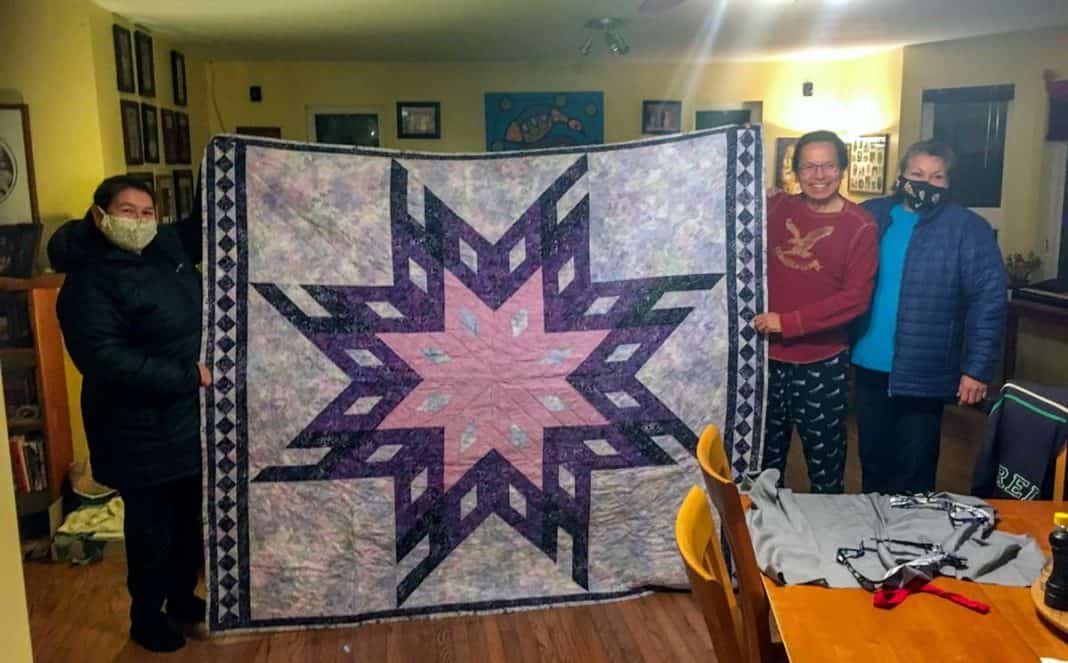by Warren Schlote
TORONTO—M’Chigeeng scholar Dr. Alan Corbiere recently earned the Barbara Godard Prize for the best graduate dissertation within the Robarts Centre for Canadian Studies at York University, which he wrote as part of his Doctor of Philosophy degree in history in September 2019.
“I didn’t realize my supervisor (Dr.) Carolyn Podruchny had nominated me so it was a big surprise,” said Dr. Corbiere.
His dissertation focused on the treaty-making process between Anishinaabe and their First Nation neighbours, as well as with French and English settlers. His paper explores the significance of metaphors and physical objects as mnemonic devices and describes the process of renewing such treaties around a council fire, a process that often took place each year.
He examined the 1701 Great Peace of Montreal, the Covenant Chain and the 1764 Treaty of Niagara and examined Anishinaabemowin, the clan system, governance models and the importance of the land to the entire structure. His thesis sought to explore the differences in understanding between settler and Anishinaabe treatment of history.
According to York University, his thesis, titled ‘Anishinaabe Treaty-Making in the 18th- and 19th-Century Northern Great Lakes: From Shared Meanings to Epistemological Chasms,’ has already proven useful in case law that interpreted 19th-century treaties in British North America.
There were eight graduate-level dissertations sent in for consideration for this award; the judges chose his entry unanimously.
“The adjudication committee thought his writing to have ‘stood out on all the criteria for the prize: advancing knowledge of Canada, transcending disciplinary boundaries and demonstrating innovation in thought and/or methodology’,” stated a York University press release announcing the two winners in late September.
Dr. Corbiere first heard the news of his win in July but with the surging pandemic and some deaths in his home community, he thought he would wait until the one-year anniversary of his defence of the thesis on September 30.
That date came and passed but his colleagues began delivering plenty of congratulations to his email—York University shared the award win in a newsletter and his accolade was officially out in the world.
“I kept putting off making my own announcement but it finally happened when two community members, Bonita and Isadora Bebamash, came to my house and presented me with a star blanket they made. I was really floored by that,” he said.
Dr. Corbiere did not get to celebrate his convocation after completing his PhD program, either. Pandemic gathering restrictions meant his only celebration was a mailed-out diploma, complete with some confetti, York University swag and a mortarboard cap.
Following this award win, York has forwarded his thesis to the Canadian Studies Network as an entry into its best PhD dissertation national award.
Barbara Godard, the award’s namesake, was a professor of English, French, social and political thought and women’s studies at York University and held the Avie Bennett Historica Chair of Canadian Literature at the school.
Dr. Corbiere has since transitioned from his student role at York to an assistant professorship in Indigenous history, taking up his post within the history department there in the fall semester of 2019.
He shared some of his treaty knowledge with The Expositor earlier this year during the COVID-19 pandemic when Manitoulin Island First Nations and municipalities sought to work together and advocate for Manitoulin’s best interests in keeping its populations safe.
His knowledge helped to draw parallels between the modern spirit of co-operation and the intended principles of interactions between First Nations and settler peoples in centuries-old treaties.
The Expositor reported on his new professorship in February, in a story that also mentioned his application to become a Canada Research Chair in Indigenous history. The outcome of that application is not yet known.





